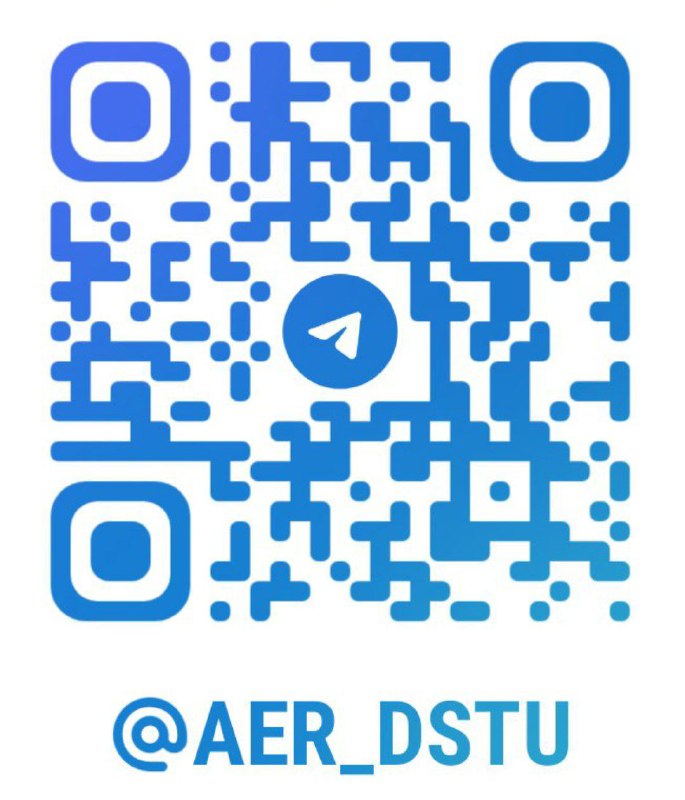Methods of evaluating maturity level of the organization based on fuzzy modeling
https://doi.org/10.23947/1992-5980-2017-17-1-113-121
Abstract
About the Authors
Lyudmila Viktorovna BorisovaRussian Federation
Lyubov Azatovna Dimitrova
Russian Federation
Inna Nikolaevna Nurutdinova
Russian Federation
References
1. GOST R ISO 9004–2010. Menedzhment dlya dostizheniya ustoychivogo uspekha organizatsii. [GOST R ISO 9004–2010. Managing for the sustained success of an organization. A quality management approach.] Federal Agency for Technical Regulation and Metrology. Moscow: Standartinform, 2011, 36 p. (in Russian).
2. Dimitrov, V.P. В. П. Ob organizatsii tekhnicheskogo obsluzhivaniya mashin s ispol'zovaniem ekspertnykh system. [On machine maintenance organization with the use of expert systems.] Vestnik of DSTU, 2003, vol. 3, no. 1, pp. 62–69 (in Russian).
3. Tugengold, А.К., Dimitrov, V.P., Borisova, L.V. K voprosu postroeniya nechetkoy ekspertnoy sistemy produktsionnogo tipa dlya tekhnologicheskoy regulirovki mashin. [To the question of fuzzy expert system constructing production type for technological adjustment of machines.] Vestnik of DSTU, 2008, vol. 8, no. 3 (38), pp. 419–426 (in Russian).
4. Dimitrov, V.P. Sovershenstvovanie metodov tekhnicheskogo obsluzhivaniya zernouborochnoy tekhniki na osnove ekspertnykh sistem : dis. … d-ra tekhn. nauk. [Improving maintenance methods of harvesters based on expert systems: Dr.Sci. (Eng.) diss.] Rostov-on-Don, 2002, 300 p. (in Russian).
5. Makarov, I.M., et al. Iskusstvennyy intellekt i intellektual'nye sistemy upravleniya. [Artificial intelligence and intelligent control systems.]. Moscow: Nauka, 2006, 333 p. (in Russian).
6. Hrehova, S.,Vagaska, A. Application of fuzzy principles in evaluating quality of manufacturing process . WSEAS Transactions on Power Systems, 2012, vol. 7, pp. 50–59.
7. Borisova, L.V. et al. Osobennosti ekspertnogo kontrolya kachestva v sfere obsluzhivaniya. [Features of export quality control in the service sector.] Kachestvo produktsii: kontrol', upravlenie, povyshenie, planirovanie : sb. nauch. tr. mezhdunar. nauch.-prakt. konf. [Quality of products: control, management, improvement, planning: Coll. sci. papers Int. Sci.- Pract. Conf.] 2014, pp. 110–113 (in Russian).
8. Shumskaya, N.N., et al. O podkhode k ekspertnoy otsenke kachestva znaniy. [On approach to the expert assessment of the knowledge quality.] Sostoyanie i perspektivy razvitiya sel'skokhozyaystvennogo mashinostroeniya: sb. statey 8-y mezhdunar. nauch.-prakt. konf. v ramkakh 18-y mezhdunar. agroprom. vystavki «Interagromash-2015». [Current state and development trends of agricultural machinery: Proc. 8th Int. Sci.-Pract. Conf. within the framework of 18th Int. Agroindustrial Exhibition “Interagromash-2015”.] Rostov-on-Don, 2015, pp. 321–324 (in Russian).
9. Dimitrov, V.P., Borisova, L.V., Nurutdinova, I.N. Otsenka soglasovannosti ekspertnykh znaniy v zadache opredeleniya urovnya zrelosti organizatsii. [Assessment of coherence of expertise in problem of determining organization maturity level.] Sovremennye tendentsii razvitiya nauki i tekhnologiy, 2016, no. 1–11, pp. 52–54 (in Russian).
10. Shumskaya, N.N., et al. O podkhode k otsenke urovnya zrelosti organizatsii s ispol'zovaniem teorii nechetkikh mnozhestv. [On approach to assessment of organization maturity level using fuzzy set theory.] Sostoyanie i perspektivy razvitiya sel'skokhozyaystvennogo mashinostroeniya: sb. statey 9-y mezhdunar. nauch.-prakt. konf. v ramkakh 19-y mezhdunar. agroprom. vystavki «Interagromash- 2015». [Current state and development trends of agricultural machinery: Proc. 9th Int. Sci.-Pract. Conf. within the framework of 19th Int. Agroindustrial Exhibition “Interagromash-2015”.] Rostov-on-Don, 2016. — С. 364–366 (in Russian).
11. Averkin, A.N., et al. Nechetkie mnozhestva v modelyakh upravleniya i iskusstvennogo intellekta. [Fuzzy sets in models of control and artificial intelligence.] Pospelov, D.A., ed. Moscow: Nauka, 1986, 312 p. (in Russian).
12. Borisov, A.N., et al. Obrabotka nechetkoy informatsii v sistemakh prinyatiya resheniy. [Fuzzy information processing in the decision-making systems.] Moscow: Radio i svyaz', 1989, 394 p. (in Russian).
13. Zadeh, L.-A. Knowledge representation in fuzzy logic. An Introduction to Fuzzy Logic Applications in Intelligent Systems. The Springer International Series in Engineering and Computer Science. New York: Springer, 1992, vol. 165, pp. 1–27.
14. Borisova, L.V., Dimitrova, L.A., Nurutdinova, I.N. Informatsionnaya podderzhka monitoringa sostoyaniya organizatsii. [Information support for monitoring of the organization state.] Vestnik of DSTU, 2016, vol. 16, no. 4, pp. 93–102 (in Russian).
15. Borisova, L.V., Dimitrov, V.P. Osobennosti formalizatsii znaniy pri logiko-lingvisticheskom opisanii slozhnykh tekhnicheskikh system. [Knowledge formalization features in logical-linguistic description of complex technical systems.] Rostov-on-Don: RGASKhM, 2006, 207 p. (in Russian).
16. Dimitrov, V.P., Borisova, L.V., Nurutdinova, I.N. Metodika otsenki soglasovannosti modeley nechetkikh ekspertnykh znaniy. [Methods for estimating coordination of fuzzy expert knowledge models.] Vestnik of DSTU, 2010, vol. 10, no. 2 (45), pp. 205–216 (in Russian).
17. Dimitrov, V.P., Borisova, L.V., Nurutdinova, I.N. O metodike predstavleniya nechetkikh ekspertnykh znaniy. [On method of representation of fuzzy expertise.] Vestnik of DSTU, 2014, vol. 14, no. 4 (79), pp. 93–102 (in Russian).
18. Dimitrov, V.P., Borisova, L.V., Nurutdinova, I.N. O metodike fazzifikatsii nechetkoy ekspertnoy informatsii. [On expert information fuzzification method.] Vestnik of DSTU, 2012, vol. 11, no. 1, iss. 2 (62), pp. 46–50 (in Russian).
19. Dimitrov, V.P., et al. Programmnaya sistema dlya vvoda ekspertnykh znaniy. [Programmed system for input of expert knowledge.] Vestnik of DSTU, 2011, vol. 11, no. 1 (52), pp. 83–90 (in Russian).
20. Dimitrov, V.P., Borisova, L.V. Teoreticheskie i prikladnye aspekty razrabotki ekspertnykh sistem dlya tekhnicheskogo obsluzhivaniya mashin. [Theoretical and applied aspects of the development of expert systems for maintenance of machinery.] Rostov-on-Don: DSTU Publ. Centre, 2007, 202 p. (in Russian).
21. Dimitrov, V.P., Borisova, L.V., Nurutdinova, I.N. O metodike defazzifikatsii nechetkoy ekspertnoy informatsii. [On defuzzification method in fuzzy expert information processing.] Vestnik of DSTU, 2010, vol. 10, no. 6 (49), pp. 868–878 (in Russian).
22. Shtovba, S.D. Proektirovanie nechetkikh sistem sredstvami MATHLAB. [Designing fuzzy systems by MATLAB tools.] Moscow: Hot Line Telecom, 2007, 288 p. (in Russian).
Review
For citations:
Borisova L.V., Dimitrova L.A., Nurutdinova I.N. Methods of evaluating maturity level of the organization based on fuzzy modeling. Vestnik of Don State Technical University. 2017;17(1):113-121. (In Russ.) https://doi.org/10.23947/1992-5980-2017-17-1-113-121












































